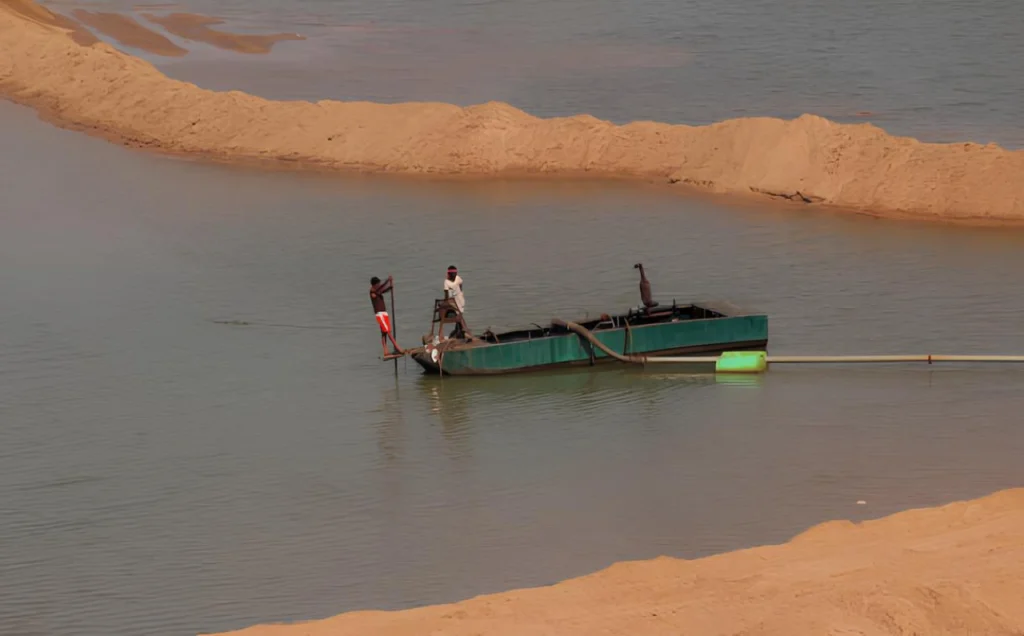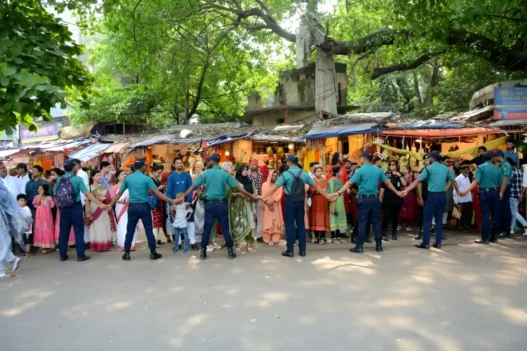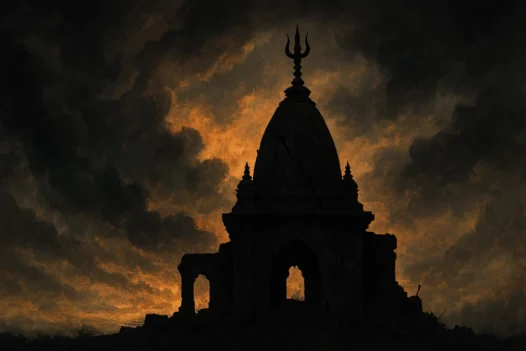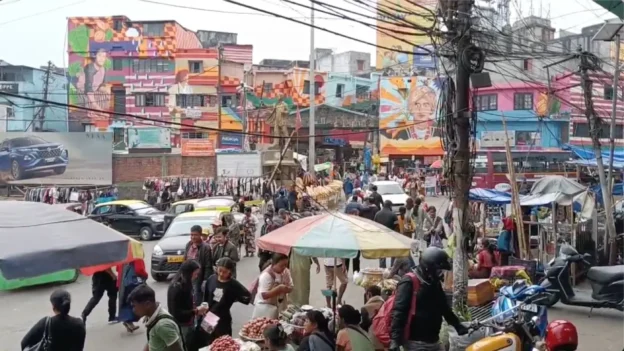In an uncommon demonstration of unity between neighbouring states, residents from Assam and Meghalaya have taken a resolute stand against illegal sand mining in the Manda River, which flows through the Dudhnoi area along their interstate border. Led primarily by women from the Mothers’ Union of Assam and Meghalaya, this collaboration represents a stark contrast to the history of border conflicts that has often shaped relations between the two states, particularly in disputed regions like Langpih and Khanapara. The alliance here speaks to a shared urgency to protect their environment, signalling a collective stand that bridges longstanding regional divides.
On Saturday, community members from both states convened at Nokmakundi village playground in Assam’s Goalpara district to discuss and rally against sand mining, an activity that has severely impacted their livelihoods and the river’s ecosystem. Illegal sand extraction has degraded the Manda River, once a crucial water source and lifeline for agriculture and local ecosystems, posing risks of erosion, water scarcity, and habitat destruction. Leading the cause, Sona Marak, President of the Mothers’ Union, highlighted that local communities had lodged their first complaint on March 14, 2023, against large-scale, unauthorised sand mining. Initial government action seized mining equipment, and extraction briefly halted; however, by May 2024, mining resumed, prompting another wave of public protest.
“This continued mining is not just disrupting our lives; it is a direct assault on our environment. Soil erosion, water pollution, and noise pollution are harming our daily lives and risking the delicate ecological balance,” Marak stated. She added that joint complaints from village heads in affected areas—including Nokmakundi and Kalikapara—had pushed authorities to investigate, temporarily suspending mining in some areas. Yet, since October 2024, the illegal activities have resumed. The Mothers’ Union, alongside other local groups, is prepared to escalate their protests if necessary. “If talks with the government do not yield results, we will continue to organise road blockades to stop this exploitation of our river,” she affirmed.
This unified approach brought together not only the Mothers’ Union but also a coalition of other organisations, including the Garo Students’ Union (GSU) Assam State Zone, the Garo Women Council (GWC), the All Bodo Students Union (ABSU), and the Garo Gaonburha Association. ABSU advisor Dhiraj Hazowary spoke at the rally, calling for collective action. “United we stand, divided we fall,” he said, urging all tribal communities to resist this exploitation. He warned that continued sand mining could have devastating, long-term impacts, stating, “The river may soon be left barren, and this will harm everything from aquatic life to farmlands, while our roads are damaged daily by overloaded trucks.”
Attendees also expressed frustration with government inaction and criticised local authorities. Hazowary claimed that forest department officials have been focused on collecting bribes rather than curbing illegal mining, allowing hundreds of trucks to transport sand from the river towards Guwahati daily. “The presence of forest offices in Rangjuli, Dudhnoi, and Dhupdhara along the roadsides has done nothing to deter the mining,” he added, questioning the priorities of local authorities.
Local political leaders have shown concern, with Dudhnoi MLA Jadob Swargiary stating that he has appealed directly to both the Assam Forest Minister and the Chief Minister, raising the issue in the Assam Assembly. “So far, no response has come. The authorities are silent, and those engaged in mining continue to flout regulations,” Swargiary noted, adding that the rampant extraction is eroding riversides and affecting community safety.
GSU President Folding R Marak further reminded the crowd of the risks associated with illegal mining, citing two tragic deaths related to sand mining in Boko River, Assam, underscoring the urgency of preventive action. He pointed out that strong protests from local residents had successfully stopped sand mining in the Boko area, urging the same commitment from communities affected by mining in the Manda River.
GWC President echoed similar concerns, pointing to how sand mining has exacerbated problems like water scarcity for cultivation, even during the rainy season. “Nokmakundi and nearby villages are facing erosion and water shortages due to the mining,” she noted, stressing the need for consistent resistance to protect their shared resources.
Local residents from affected villages on both sides of the border—such as Assam’s Damra and Bakrakhuti and Meghalaya’s Nogolpara and Ansalipara—are hopeful that their collective voice will resonate with policymakers and lead to a sustainable resolution. As Assam and Meghalaya communities rally together, their unified stand against illegal mining not only underscores an environmental crisis but also offers a model of collaboration that could reshape regional relations for the future.







